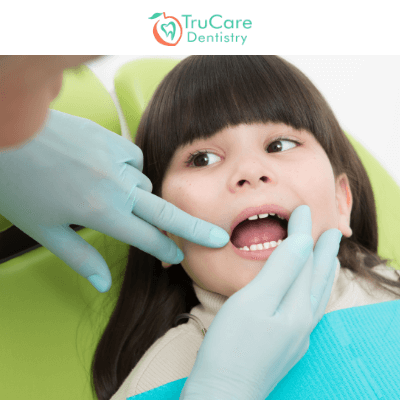
Dental Bonding and Porcelain Veneers are two popular options for improving the appearance of teeth. Both methods address issues such as discoloration, chipping, and spacing. However, they have different pros and cons, and the right choice depends on various factors, including the patient’s dental health, budget, and aesthetic goals.
This blog post will explore the significant differences between Dental bonding and Porcelain veneers and help you determine the suitable option.
Dental Bonding
Dental Bonding is a dental procedure involving coating the teeth outside with a tooth-colored composite resin substance. The resin is molded and shaped to match the contours of your teeth, and then it’s hardened using a special light.
Dental Bonding use is to fix a variety of dental issues, including:
- Chipped or cracked teeth
- Gaps between teeth
- Discolored teeth
- Misshapen teeth
- Decayed teeth
Benefits of Dental Bonding
- Cost-effective: Dental Bonding is generally less expensive than porcelain veneers.
- Quick and easy: Dental Bonding typically takes less than an hour per tooth.
- Minimally invasive: Unlike porcelain veneers, Dental Bonding doesn’t require the removal of much tooth enamel.
- Versatile: Dental Bonding can fix a wide range of cosmetic dental issues.
Drawbacks of Dental Bonding
- Not as durable as porcelain veneers: Dental Bonding is more prone to chipping and staining than porcelain veneers.
- Not as natural-looking: While dental Bonding can improve the appearance of your teeth, it may not look as natural as porcelain veneers.
- Not a long-term solution: This typically lasts between 3 and 10 years, depending on how well you care for your teeth.
Porcelain Veneers
Porcelain Veneers are tiny shells of porcelain that can be fitted over the front surface of teeth. The veneers are bonded to your teeth using a unique dental adhesive, and you can use it to improve the appearance of your teeth in several ways.
Porcelain veneer’s primary use is to fix numerous dental issues, including:
- Discolored teeth
- Misshapen teeth
- Crooked teeth
- Gaps between teeth
- Chipped or cracked teeth
Benefits of Porcelain Veneers
- Durable: Porcelain veneers are much more durable than dental bonding and can last up to 20 years with proper care.
- Natural-looking: They look like natural teeth and can be matched to the color of your existing teeth.
- Stain-resistant: Highly resistant to staining, so there is no need to worry about becoming discolored over time.
- Permanent solution: Long-term solution for improving the appearance of your teeth.
Drawbacks of Porcelain Veneers
- More expensive: Generally more costly than dental bonding.
- Time-consuming: Requires two or more dental appointments and can take several weeks.
- Irreversible: Porcelain veneers require the removal of some tooth enamel, which is irreversible.
Dentistry Bonding vs. Porcelain Veneers: Which Option is Right?
Porcelain Veneers and Dental Bonding use a similar technique to address aesthetic issues. Because of this, many patients choose one of the two treatments. Veneers and bonding, however, differ significantly in several ways, including:
- Treatable Concerns: Both procedures can handle many of the same cosmetic problems. However, Porcelain veneers might be a better solution for more severe issues.
- Tooth preparation: Dentists must remove a small piece of enamel from your teeth to allow the porcelain veneers to fit in flawlessly with your smile. Dental Bonding can be prepared without the teeth.
- Material: Composite resin in tooth-colored is used to achieve dental bonding. Porcelain veneers are unique, specially-made restorations made in a lab from a resilient ceramic material. Ceramics is a sturdy material that doesn’t quickly become stained.
- Durability: Properly maintained porcelain veneers last longer than dental bonding. To increase your choice’s lifespan, maintain a healthy oral hygiene regimen and come in for cleanings at regular intervals.
- Cost: Dental Bonding is frequently less expensive than porcelain veneers in terms of price. You could require more cosmetic procedures to keep your teeth looking white because they won’t be stain-resistant. Additionally, you’ll need to change the bonding more frequently than a veneer. We provide flexible financing alternatives to make any choice more affordable for you.
The best method to choose the treatment that will work best for your particular needs is to have a personalized consultation. The dentists take the time to hear about your aesthetic worries and thoroughly examine your best course of action.
Book your Appointment for Cosmetic Dentistry today!
To know more about Dental Bonding or Porcelain, Contact us to talk to the best emergency dentist in Roswell, GA, or neighboring areas such as Dunwoody, Alpharetta, Milton, Marietta, Woodstock, or Sandy Springs. In addition, visit our website to arrange an appointment today if you’d like to learn more about Dental Bonding or Porcelain Veneers. Our dentists would gladly offer their advice on how to improve your smile. Also, you can book an appointment at TruCare Dentistry or visit our website or call (678) 321-7575 to book your appointment and learn more about our services.
